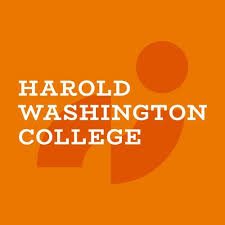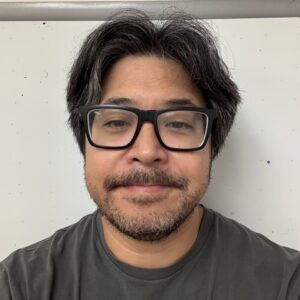Giving the Gift of Time
January 9, 2026
Martin Luther King, Jr. Day is recognized as a national day of service. Ahead of the holiday, Harold Washington College student Porsha shares why she...

For Dr. Anthony Escuadro, a physics professor at Harold Washington College, science has always been more than a subject—it’s his lifelong passion.
“I can’t remember a time when I wasn’t interested in science,” he said.
He fondly reflects on the joy he felt as a child in the 1980s when Odyssey magazine would arrive in the mail, and hewould recreate experiments from Mr. Wizard’s World. While his parents didn’t have science backgrounds themselves, they nurtured their son’s curiosity with museum visits and science magazine subscriptions. This helped foster a fascination with how the world works that remains in Dr. Escuadro today.
That fascination led Dr. Escuadro to begin pursuing a career in research, but in college, he discovered the joy of teaching while working as a course assistant. He enjoyed mentoring his students and developing ways to simplify complex topics—and he was good at it. The turning point came over lunch with a former classmate, David Marasco—now a board representative for the American Association of Physics Teachers (AAPT). David’s enthusiasm for teaching physics at a two-year college deeply resonated with Dr. Escuadro.
“His vote of confidence had an immediate impact,” Dr. Escuadro recalled. “After our conversation, I dedicated all my energy to following in David’s footsteps.”
That dedication led Dr. Escuadro to Harold Washington College in 2007, where he has been teaching ever since. Shortly after starting his role, he joined AAPT—a professional home that has allowed him to connect with educators from all over the country who have become mentors.
Beyond the classroom, Dr. Escuadro remains committed to advancing physics education. He helps coordinate the Physics Education Research (PER) Interest Group for the Organization for Physics at Two Year Colleges (OPTYCs), a role he takes to heart—even as federal funding for such programs faces uncertainty.
“The need to improve physics education for students with diverse backgrounds, experiences, and perspectives has not changed,” he says. “Programs like OPTYCs and STEP UP are vital, and I hope the community finds ways to sustain them.”
For Dr. Escuadro, physics is not just a field of study—it’s a community of educators and learners, fueled by curiosity, connection, and a shared belief in the power of science to change lives.
![]()